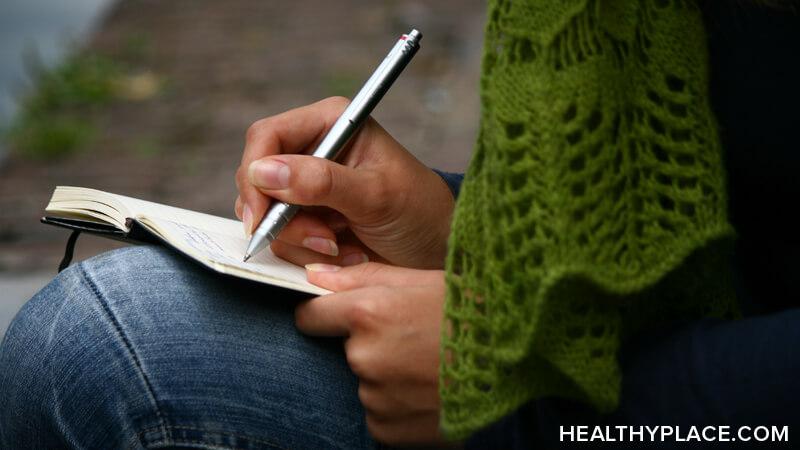Personal Rituals Can Protect Trauma Survivors from Stress

Seasonal holidays involve many inherent rituals, but have you considered creating your own personal rituals to protect you from holiday stress and anxiety? I had the opportunity to discuss rituals--both helpful and harmful ones--with psychologist Stanton Peele while researching an article about addiction for Vice.1 He describes the ways in which some rituals actually protect people from developing addictions--such as Jewish customs of drinking wine only during certain occasions. He finds that Jews who associate wine in that religious context often find it odd to think of alcohol as a "party drug." This conversation made me think of the routine rituals we encounter during the holidays. Can trauma survivors intentionally create personal rituals as a means of coping with some of the extra stress associated with holidays?
Could Personal Rituals Displace Traumatic Memories?
Holidays are stressful for a lot of people--but for those of us with posttraumatic stress disorder (PTSD) they can be extra anxiety-inducing. These events often involve family rituals that cause us to come into contact with large numbers of people. For those with social anxiety, that alone can be problematic. Sometimes holidays force an abuse survivor to be around her abuser, especially if she was assaulted by a family member. Or, the mere expectation of merriment during the holidays can be enough to trigger depression in someone with a shortened emotional spectrum.
"Why can't I feel happy like everyone else?" you might wonder. Or, "If this is supposed to be fun, why doesn't it feel fun to me?"
To make matters worse, some holidays may also represent traumatic anniversaries for some people. I'm not sure if a birthday can be classified as a holiday, but I was brutally beaten by my ex-boyfriend on my 18th birthday. That means each year my birthday celebration is also an anniversary of violent trauma.
There are various reasons why holidays can leave people especially vulnerable to trauma. For example, a child may be sexually violated by a family member whom the parents trust as a caregiver. Or an abusive family may use the expectations associated with gift-giving holidays to emotionally abuse or neglect a child. A predatory co-worker might take advantage of someone who drank alcohol at an office party. An abusive partner can create an excuse for violence out of a burned dish or poorly set table. Years later, these same holidays can trigger physical and emotional responses related to those past events.
Personal Rituals Protect Your Mental Health
We know that rituals are important to mental health and I find Peele's ideas about protective personal rituals very interesting. Personally, I think they can be applied beyond addiction theory. I'm not a psychological professional, but I think it's totally plausible that trauma survivors can take it into our hands to create protective, personal rituals that will make holidays and other stressful events easier to navigate.
We can't control all the family, religious, or other holiday-based rituals that take place during these times, but we can use the idea of ritualization to create a feeling of safety within ourselves. Rituals for success in trauma recovery could include anything with personal significance to you.
Cope ahead before a planned stressful event; for example, try meditating or exercising. Another option is to write out the traumatic event on a slip of paper and then burn it like a cremation. What if you write your hopes regarding healing on a paper and bury it as a symbolic ritual planting? How about, each time you become overwhelmed by the sounds of the party, you put headphones on and listen to your favorite calming song or sound?
There are many different interesting rituals we can invent for ourselves. These small bits of personal magic act as protection during difficult times. Or if you don't like to think in those terms, consider it a healthy diversion from stress and practice life-affirming rituals regularly.
Writing About Trauma Is My Personal Healing Ritual
Writing about my trauma has been one of the single-most helpful acts I've done for my recovery. When I make a personal ritual of it--meaning I ensure that I write about my trauma at least once a day, if only for a few moments--I feel less dissociated during my regular life. Learn how writing about trauma provides distance from the event in this short video that was filmed by my friend and cinematographer Alexander Irwin.
Source
1 Brico, Elizabeth, I Got Addicted to the Needle Even When There Was Nothing to Shoot Up, Vice.com. Nov. 17, 2017.
APA Reference
Brico, E.
(2017, November 22). Personal Rituals Can Protect Trauma Survivors from Stress, HealthyPlace. Retrieved
on 2026, March 4 from https://www.healthyplace.com/blogs/traumaptsdblog/2017/11/protective-rituals